APC’s research, advocacy and capacity-building work during 2017 contributed to an increased understanding among civil society, human rights defenders, national human rights institution (NHRI) representatives and development practitioners in Africa, Asia and Latin America of how the internet has become a key site of struggle for the full enjoyment of human rights.
Human rights violations on the internet are increasing and NHRIs have a key role to play to protect and promote human rights online. APC developed a paper, “National human rights institutions in digital spaces“, in response to the call for submissions on the role of NHRIs in Southeast Asia in protecting human rights. It addresses the ways that ICTs and the internet in particular create new and promising spaces where NHRIs can improve the way they function and reach out to stakeholders in previously unimaginable ways. It also makes a call to NHRIs to remind governments that their obligation to protect, promote and fulfil all human rights includes providing meaningful access to the internet for all people.
In Africa, APC co-organised human rights capacity-building workshops, including an event where NHRI representatives and members of the judiciary from over 15 countries were trained on how to protect and promote human rights online by effectively using regional and international human rights instruments such as the African Declaration on Internet Rights and Freedoms, and a training workshop for civil society organisations from the region, co-organised with APC member CIPESA and Small Media Foundation, titled “Connecting your rights! Using international and regional human rights mechanisms to protect human rights online”.
APC also co-organised a training workshop for 11 representatives of Latin American civil society organisations in December 2017 on the use of regional and global human rights instruments, in collaboration with the Centre for Studies on Freedom of Expression and Access to Information (CELE).
The African Declaration, the Feminist Principles of the Internet, the APC Internet Rights Charter, the APC Internet Rights Are Human Rights training curriculum and the APC-La Rue Framework were used as monitoring frameworks and mechanisms to advocate for a rights-based approach to internet policy.
In 2017, the African Declaration on Internet Rights and Freedoms interactive web platform was translated in more languages to promote wider engagement and outreach of the Declaration. The platform is now available in English, French, Portuguese and Arabic. According to Avis Momeni, secretary general of PROTEGE QV, an APC member organisation in Cameroon that frequently uses the African Declaration for advocacy, “Having the Declaration in all these languages helps sensitise all African users and makes them more aware of their rights relative to the internet. It also enables African governments, on the other hand, to understand the scope of these principles in the elaboration and implementation of public policies.”
APC also carried out presentations to promote greater awareness and engagement around the African Declaration and its web platform at five key global and regional events, including the 2017 Internet Freedom Festival in Valencia, Spain, RightsCon in Brussels, Belgium, and the Africa Internet Summit in Nairobi, Kenya.
To watch out for: In 2018, APC will deepen its engagement in regional work through strategic interventions at regional human rights mechanisms and developing internet rights agendas with regional members and partners.

